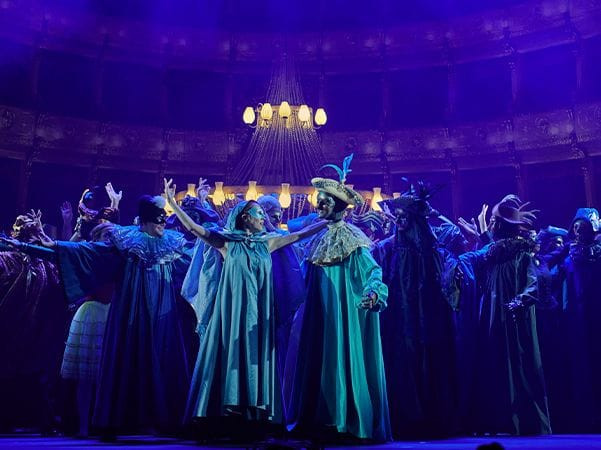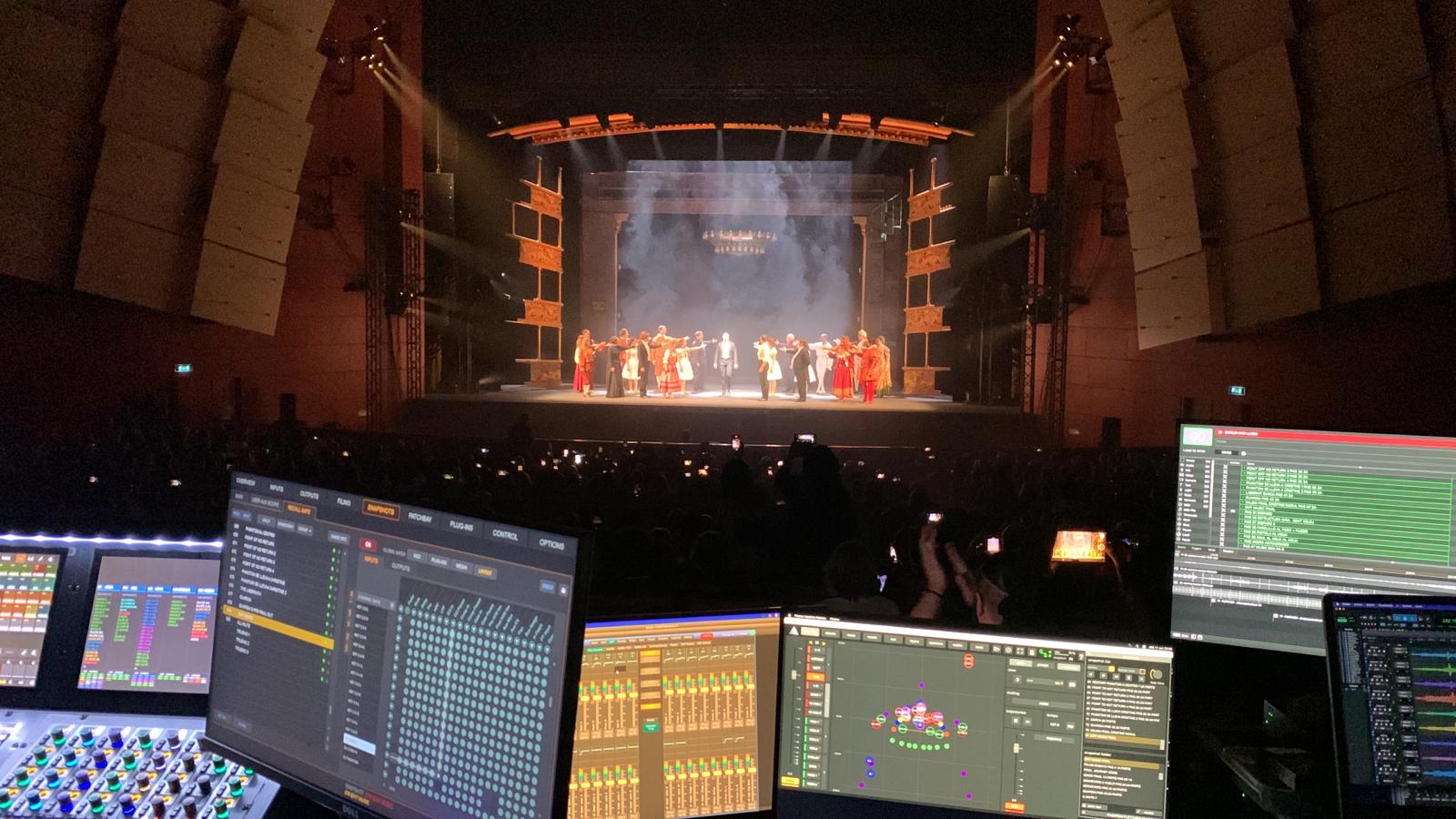An abstract from the article published on Instalia website.
Since its debut in 1986, this iconic musical has had a lasting influence, defining what it means to be a truly immortal production. And now, the Albéniz Theatre in Madrid has become the epicenter of its revival, with a version that not only honors its rich history but also promises to redefine its future.
This impressive immersive installation has been meticulously designed by the prestigious musical designer, Roc Mateu.
The entire management and adjustment of the system are handled by three units of PRODIGY.MP, a versatile device designed for applications in live sound, broadcasts, installations, and recordings, offering a wide range of advanced technical features. Quite remarkable are its flexibility in inputs/outputs (I/O), compatibility with dual audio networks, DSP functions, sample rate conversion, and a powerful combination of hardware and software.
In terms of I/O, the PRODIGY.MP includes four local slots for analog line/microphone input and AES3 modules, with eight channels per module, totaling up to 32 local inputs and outputs. Additionally, it supports two MADI and audio network options, with MADI slots that can be equipped with BNC, SC optical, and SFP modules, and audio network cards that add options such as Dante, RAVENNA/AES67, or SoundGrid. Its total channel capacity reaches 416 inputs and 420 outputs, managed by a channel-based routing matrix.
The low-latency FPGA-based processing of PRODIGY.MP offers Matrix Mixers, Summing Buses, and Flex-Channels with EQ (FIR & IIR filters), dynamics, delay, and external plug-ins.
Source: Instalia website at this link.


